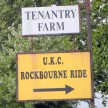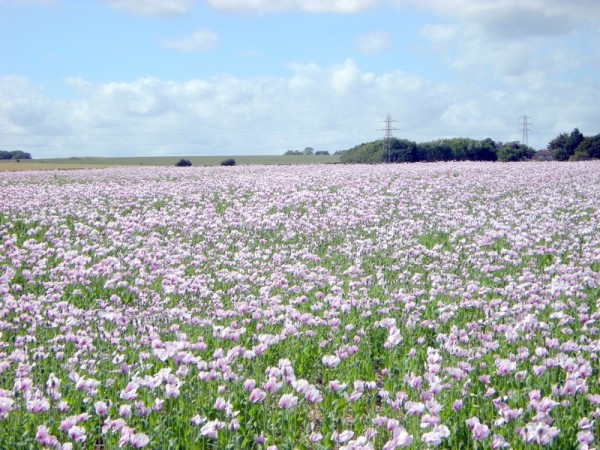Tenantry Farm
This is our wonderful Poppy Crop for 2013!
The farm is of some 700 acres and is "the last whole-farm on the southern edge of Salisbury Plain".
This means we have about 8" to 12" of light loam soil over some 900' of pure white chalk.
There have been settlers here since pre-historic times and we have evidence of much of the ancient remains.
Much of the present farm was ploughed out of scrub / grassland during the 'Dig for Victory' effort of World war 11, and at that time the old dairy buildings, which are now the centre for our residential camps, were constructed.
Since the mid-seventies we have specialised in arable seed production of wheat, barley, Grass Seed, peas, beans and linseed. This has required a very high degree of discipline to ensure total cleanliness of fields, machinery and storage to ensure complete freedom from contamination between species.
As the seed production industry has changed and as our staffing has reduced, we now specialise in wheat for bread, barley for beer and lager, oilseed rape for cooking
oils, poppies for morphine production and amenity grass seeds for lawns, turf and sports grounds.
All applications of sprays and fertilisers are extremely carefully monitored by specialist agronomists to ensure that we achieve the best results without any negative
effect on wildlife or the environment.
Conservation has always been very high on our list of important factors and we have, over the years, taken part in many projects to study the effects of what we do, and
how we do it.
The reduction in wildlife numbers, especially of bumble bees, hedgehogs, and English partridges is of continuing concern and our planting of woodland, hedges and 'stewardship areas' has gone towards improving the environment for all species. The increase in brown hare numbers is of particular pleasure to us.
At present we are involved in a study and reintroduction for hedgehogs, which includes their environmental choices.
Our sheep are North of England 'Mules' which arrive in Autumn as lambs to graze to following year's grass seed fields, they then move on to stubble turnips to provide
natural organic fertiliser and spend the summer grazing the Equestrian fields to keep a good cover of grass for Events and camps. At the end of the summer the whole flock is sold to a Devon farmer
for breeding and the cycle starts all over again!








